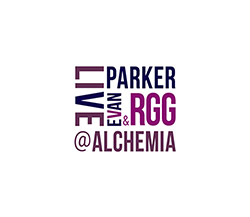
As part of the Polish website Jazzarium.pl's 5th anniversary celebration, UK tenor saxophonist Evan Parker joined the Polish RGG free-improvising piano trio of Lukasz Ojdana on piano, Maciej Garbowski on bass, and Krzysztof Gradziuk on drums, for this four-part sophisticated collective improvisation recorded at the legendary Alchemia club in Krakow.
In Stock
Quantity in Basket: None
Log In to use our Wish List
Shipping Weight: 3.00 units
EU & UK Customers:
Discogs.com can handle your VAT payments
So please order through Discogs
Sample The Album:
Evan Parker-tenor saxophone
Lukasz Ojdana-piano
Maciej Garbowski-bass
Krzysztof Gradziuk-drums
Click an artist name above to see in-stock items for that artist.
UPC: 5905279364172
Label: Listen! Foundation (Fundacja Sluchaj!)
Catalog ID: FSR 01 | 2017
Squidco Product Code: 27489
Format: CD
Condition: New
Released: 2017
Country: Poland
Packaging: Cardboard Gatefold
Recorded at Alchemia, in Krakow, Poland, on June 12th, 2016, by Rafal Drewniany.
"On June 15th 2016 the website jazzarium.pl celebrated its fifth anniversary. It wasn't turning 18, but in the virtual reality time flows a bit differently, you count it not the same way as outside the Internet. Little or full-grown, we are very happy that thanks to you we were able and we are still able to do what we do. For you. Without you: both listeners and concert-goers, both CD producers and organisers of concerts, we wouldn't have been at the place we are now and most probably we wouldn't have found the power to continue. We are not big fans of exuberant celebrations and grand gala evenings, or PR slogans which are often much louder than the music they are supposed to promote. However, our fifth birthday was so important to us, that we decided to celebrate it in an appropriate way.
What was the way? Music, obviously - but what music? On such occasion we wanted to hear music that was unheard before. Music, that gives you no chance to prepare for or to anticipate its perception; music that is full of risk on one hand, and that can open new horizons for both listeners and musicians on the other. Therefore, we decided to invite artists, who in theory have very little in common (country of origin, years of stage experience, range of musical background), but in fact are not that different from one another - they have all dedicated their whole life to music and they've been doing it consequently and with just as much enchantment as at the beginning of their career. And, what's even more important, they keep taking their own way.
It was a great honor to host the great magician of improvisation, Even Parker together with the most promising, in our opinion, formation of the Polish jazz scene, RGG. They played together on the hospitable stage of legendary Alchemia club in Krakow and today we're handing the recording of this meeting to you, believing that their music will be remembered by you as long as it's remembered by us."-Fundacja Slucha
"RGG was founded in 2001 by three students of the Jazz Faculty of the Music Academy in Katowice - Przemysław Raminiak (piano), Maciej Garbowski (double bass), Krzystof Gradziuk (drums). Their debut came in 2003, thanks to their winning the prestigious contest at the Bielska Zadymka Jazz Festival (today's Lotos Jazz Festival). They were awarded with a recording session at Radio Katowice and released Scandinavia - an album revealing their love for the Scandinavian approach towards improvised music. The recording received nothing but praise from jazz journalists. Adam Baruch wrote for Polish Jazz Magazine:
Although obviously the work of young musicians, this is an incredibly impressive debut recording by any standard. The performances are remarkably mature and the compositions are both beautifully melodic and startlingly complex and excellently crafted. The overall level of this album is a clear indication of the potential this trio will fully develop in the years to come.
Right after Scandinavia's release, RGG embarked on the biggest project in the trio's history - recording a triptych comprising of three albums: Straight Story (inspired by David Lynch's film entitled likewise), Unfinished Story - Remembering Mieczysław Kosz (dedicated to an amazingly gifted Polish pianist who died prematurely at the age of 29 in the 1970s) and True Story - In Two Acts which seemed to be an ending not only to the Story project but also to the process of crystallizing the trio's style. Maciej Nowak wrote for Jazz Forum:
True Story was RGG's credo of sorts, of the highest belief in artistic power of improvisation, of strongly standing for a certain aesthetic.
After exploring the spacious landscapes of freely improvised acoustic jazz, RGG members decided to return to 'more organized and written' music. Their 5th album entitled One is often regarded as a summary of the triptych. It fully shows the potential of the trio as a collective group of improvisers but on the other hand it draws inspiration from contemporary and chamber classical music. It seems to be much more planned and vigorous, including compositions such as the fast and dynamic C.T. - referring to one of the founders of the free jazz, the great Cecil Taylor.
In 2013 Łukasz Raminiak left the trio and was replaced by a young pianist Łukasz Ojdana. By this means, RGG trio (a name which used to stand for musicians' surnames initials) became the first piano trio to change their pianist."-Wojciech Oleksiak, Cluture.PL
Artist Biographies
• Show Bio for Evan Parker "Evan Parker was born in Bristol in 1944 and began to play the saxophone at the age of 14. Initially he played alto and was an admirer of Paul Desmond; by 1960 he had switched to tenor and soprano, following the example of John Coltrane, a major influence who, he would later say, determined "my choice of everything". In 1962 he went to Birmingham University to study botany but a trip to New York, where he heard the Cecil Taylor trio (with Jimmy Lyons and Sunny Murray), prompted a change of mind. What he heard was "music of a strength and intensity to mark me for life ... l came back with my academic ambitions in tatters and a desperate dream of a life playing that kind of music - 'free jazz' they called it then." Parker stayed in Birmingham for a time, often playing with pianist Howard Riley. In 1966 he moved to London, became a frequent visitor to the Little Theatre Club, centre of the city's emerging free jazz scene, and was soon invited by drummer John Stevens to join the innovative Spontaneous Music Ensemble which was experimenting with new kinds of group improvisation. Parker's first issued recording was SME's 1968 Karyobin, with a line-up of Parker, Stevens, Derek Bailey, Dave Holland and Kenny Wheeler. Parker remained in SME through various fluctuating line-ups - at one point it comprised a duo of Stevens and himself - but the late 1960s also saw him involved in a number of other fruitful associations. He began a long-standing partnership with guitarist Bailey, with whom he formed the Music Improvisation Company and, in 1970, co-founded Incus Records. (Tony Oxley, in whose sextet Parker was then playing, was a third co-founder; Parker left Incus in the mid-1980s.) Another important connection was with the bassist Peter Kowald who introduced Parker to the German free jazz scene. This led to him playing on Peter Brötzmann's 1968 Machine Gun, Manfred Schoof's 1969 European Echoes and, in 1970, joining pianist Alex von Schlippenbach and percussionist Paul Lovens in the former's trio, of which he is still a member: their recordings include Pakistani Pomade, Three Nails Left, Detto Fra Di Noi, Elf Bagatellen and Physics. Parker pursued other European links, too, playing in the Pierre Favre Quartet (with Kowald and Swiss pianist Irene Schweizer) and in the Dutch Instant Composers Pool of Misha Mengelberg and Han Bennink. The different approaches to free jazz he encountered proved both a challenging and a rewarding experience. He later recalled that the German musicians favoured a "robust, energy-based thing, not to do with delicacy or detailed listening but to do with a kind of spirit-raising, a shamanistic intensity. And l had to find a way of surviving in the heat of that atmosphere ... But after a while those contexts became more interchangeable and more people were involved in the interactions, so all kinds of hybrid musics came out, all kinds of combinations of styles." A vital catalyst for these interactions were the large ensembles in which Parker participated in the 1970s: Schlippenbach's Globe Unity Orchestra, Chris McGregor's Brotherhood of Breath, Barry Guy's London Jazz Composers Orchestra (LJCO) and occasional big bands led by Kenny Wheeler. In the late 70s Parker also worked for a time in Wheeler's small group, recording Around Six and, in 1980, he formed his own trio with Guy and LJCO percussionist Paul Lytton (with whom he had already been working in a duo for nearly a decade). This group, together with the Schlippenbach trio, remains one of Parker's top musical priorities: their recordings include Tracks, Atlanta, Imaginary Values, Breaths and Heartbeats, The Redwood Sessions and At the Vortex. In 1980, Parker directed an Improvisers Symposium in Pisa and, in 1981, he organised a special project at London's Actual Festival. By the end of the 1980s he had played in most European countries and had made various tours to the USA, Canada, Australia, New Zealand and Japan. ln 1990, following the death of Chris McGregor, he was instrumental in organising various tributes to the pianist and his fellow Blue Notes; these included two discs by the Dedication Orchestra, Spirits Rejoice and lxesa. Though he has worked extensively in both large and small ensembles, Parker is perhaps best known for his solo soprano saxophone music, a singular body of work that in recent years has centred around his continuing exploration of techniques such as circular breathing, split tonguing, overblowing, multiphonics and cross-pattern fingering. These are technical devices, yet Parker's use of them is, he says, less analytical than intuitive; he has likened performing his solo work to entering a kind of trance-state. The resulting music is certainly hypnotic, an uninterrupted flow of snaky, densely-textured sound that Parker has described as "the illusion of polyphony". Many listeners have indeed found it hard to credit that one man can create such intricate, complex music in real time. Parker's first solo recordings, made in 1974, were reissued on the Saxophone Solos CD in 1995; more recent examples are Conic Sections and Process and Reality, on the latter of which he does, for the first time, experiment with multi-tracking. Heard alone on stage, few would disagree with writer Steve Lake that "There is, still, nothing else in music - jazz or otherwise - that remotely resembles an Evan Parker solo concert." While free improvisation has been Parker's main area of activity over the last three decades, he has also found time for other musical pursuits: he has played in 'popular' contexts with Annette Peacock, Scott Walker and the Charlie Watts big band; he has performed notated pieces by Gavin Bryars, Michael Nyman and Frederic Rzewski; he has written knowledgeably about various ethnic musics in Resonance magazine. A relatively new field of interest for Parker is improvising with live electronics, a dialogue he first documented on the 1990 Hall of Mirrors CD with Walter Prati. Later experiments with electronics in the context of larger ensembles have included the Synergetics - Phonomanie III project at Ullrichsberg in 1993 and concerts by the new EP2 (Evan Parker Electronic Project) in Berlin, Nancy and at the 1995 Stockholm Electronic Music Festival where Parker's regular trio improvised with real-time electronics processed by Prati, Marco Vecchi and Phillip Wachsmann. "Each of the acoustic instrumentalists has an electronic 'shadow' who tracks him and feeds a modified version of his output back to the real-time flow of the music." The late 80s and 90s brought Parker the chance to play with some of his early heroes. He worked with Cecil Taylor in small and large groups, played with Coltrane percussionist Rashied Ali, recorded with Paul Bley: he also played a solo set as support to Ornette Coleman when Skies of America received its UK premiere in 1988. The same period found Parker renewing his acquaintance with American colleagues such as Anthony Braxton, Steve Lacy and George Lewis, with all of whom he had played in the 1970s (often in the context of London's Company festivals). His 1993 duo concert with Braxton moved John Fordham in The Guardian to raptures over "saxophone improvisation of an intensity, virtuosity, drama and balance to tax the memory for comparison". Parker's 50th birthday in 1994 brought celebratory concerts in several cities, including London, New York and Chicago. The London performance, featuring the Parker and Schlippenbach trios, was issued on a highly-acclaimed two-CD set, while participants at the American concerts included various old friends as well as more recent collaborators in Borah Bergman and Joe Lovano. The NYC radio station WKCR marked the occasion by playing five days of Parker recordings. 1994 also saw the publication of the Evan Parker Discography, compiled by ltalian writer Francesco Martinelli, plus chapters on Parker in books on contemporary musics by John Corbett and Graham Lock. Parker's future plans involve exploring further possibilities in electronics and the development of his solo music. They also depend to a large degree on continuity of the trios, of the large ensembles, of his more occasional yet still long-standing associations with that pool of musicians to whose work he remains attracted. This attraction, he explained to Coda's Laurence Svirchev, is attributable to "the personal quality of an individual voice". The players to whom he is drawn "have a language which is coherent, that is, you know who the participants are. At the same time, their language is flexible enough that they can make sense of playing with each other ... l like people who can do that, who have an intensity of purpose." " ^ Hide Bio for Evan Parker • Show Bio for Lukasz Ojdana "Łukasz Ojdana - jazz pianist and composer. In 2016 he graduated from the Institute of Jazz at the Karol Szymanowski Academy of Music in Katowice. Since 2018 teacher in a Institute of Jazz on the Karol Szymanowski Academy of Music in Katowice. A member of the piano trio RGG - very well stated in Poland. In 2016-2018 a member of the Tomasz Stanko Band. He performed in Poland, Germany, Iceland, Netherlands, Turkey, Russia, Hungary, South Korea, Kazakhstan, United Kingdom, Switzerland, Czech Republic. Cooperation: Tomasz Stanko, Zbigniew Namyslowski, Evan Parker, Samuel Blaser, Verneri Pohjola, Trevor Watts, RGG and many others..." ^ Hide Bio for Lukasz Ojdana • Show Bio for Maciej Garbowski Maciej Garbowski: "Graduated from the Jazz Institute (2004) and the Classical Faculty (2005) on the Academy of Music in Katowice In 2002-2005 a member of the Aukso Chamber Orchestra conducted by Marek Moś. Co-former of the piano trio RGG very well stated in Poland and Europe. Since 2007 teacher in a Jazz Institute on the Academy of Music in Katowice. A member of a Tomasz Stańko's project - New Balladyna Quartet. The initiator of the project Lutosławski Collective. Garbowski is foremost jazz and classical bassist, composer, and the forerunner of the idea of international collaboration of artists from different musical cultures under the banner of IMP (International Musical Project). Participant of European art initiatives such as the Jazz Plays Europe or Take Five Europe. Maciej Garbowski is a winner of numerous awards, such as: I Prize on the Jazz Blizzard Festival 2003 and 2007, II Prize and the Audience Prize on XXVII Internacionale Festival de Jazz w Getxo (Spain) in 2003, Key to the Carreer Award on Pomerania Jazz Festival 2003, Jazz Album of the Year - Rzeczpospolita & Jazz Radio (RGG -Unfinished Story), "Melomani 2008" Award for the best jazz album (RGG - Unfinished Story). His solo debut album "Elements" was nominated to the most important Polish musical award Fryderyki 2013. Garbowski has reached the number of 25 released CD albums yet. Cooperation: RGG, Maciej Obara Trio, Aukso Chamber Orchestra, Esus, Tomasz Stańko, Terje Rypdal, Thomas Gustafsson, Jon Fält, Antoine Roney, Jan "Ptaszyn" Wróblewski, Anders Jormin." ^ Hide Bio for Maciej Garbowski • Show Bio for Krzysztof Gradziuk Krzysztof Gradziuk: "A jazz drummer and teacher. A graduate of the Institute of Jazz at the Academy of Music in Katowice. In 2003 he was awarded a one-term scholarship from the Hohschule für Musik und Theater in Leipzig (Germany) and in 2004 he took part in the Summer Jazz Workshop in Louisville (USA) in the class of John Riley and Steve Davis. In 2004 he was granted the scholarship of the Minister of Culture and Arts. Since 2001 he has been a member of the RGG piano trio, one of the major jazz ensembles in the country. Other groups he is permanently involved with include: Maciej Obara Quartet, Anna Gadt Quartet, Maciej Fortuna Trio, Daniel Popiałkiewicz Quartet and Leszek Kułakowski Trio. He is currently teaching in the percussion class at the Institute of Jazz at the Academy of Music in Katowice, at the Faculty of Jazz at the Fryderyk Chopin State Music Schools (2nd Degree) in Warsaw as well as at the Post-secondary Henryk Majewski Jazz Study in Warsaw." ^ Hide Bio for Krzysztof Gradziuk
11/29/2024
Have a better biography or biography source? Please Contact Us so that we can update this biography.
11/29/2024
Have a better biography or biography source? Please Contact Us so that we can update this biography.
11/29/2024
Have a better biography or biography source? Please Contact Us so that we can update this biography.
11/29/2024
Have a better biography or biography source? Please Contact Us so that we can update this biography.
Track Listing:
1. Part One 16:45
2. Part Two 18:12
3. Part Three 18:22
4. Part Four 18:32
Improvised Music
Jazz
Free Improvisation
Collective Free Improvsation
European Improvisation and Experimental Forms
London & UK Improv & Related Scenes
Quartet Recordings
Parker, Evan
Search for other titles on the label:
Listen! Foundation (Fundacja Sluchaj!).


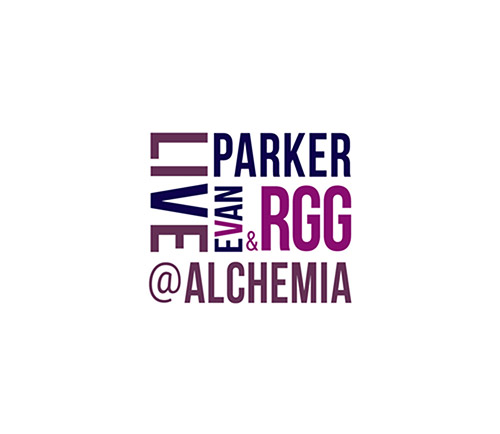



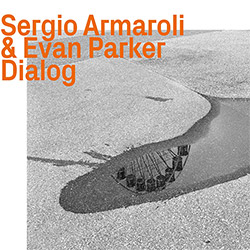
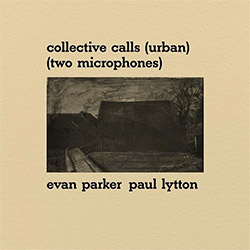



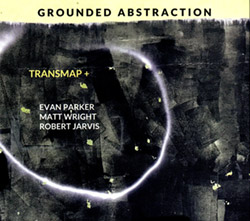



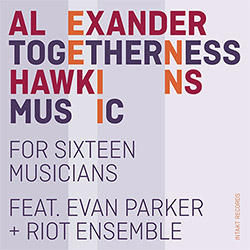


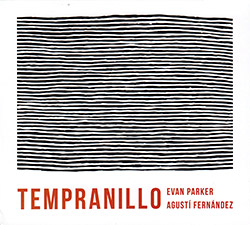
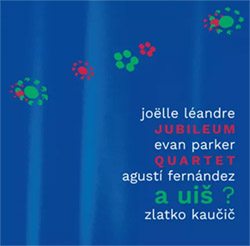
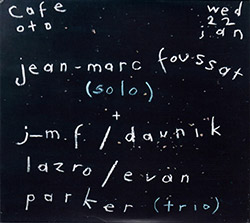
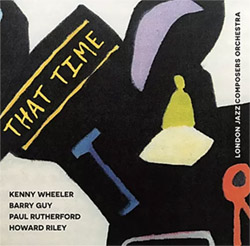

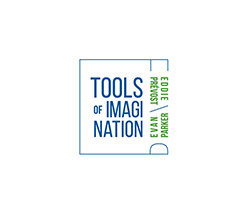

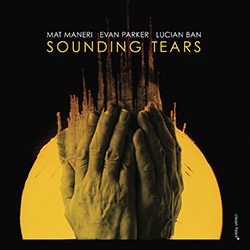






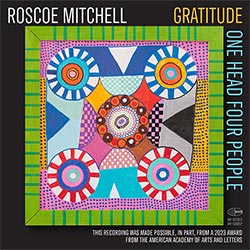
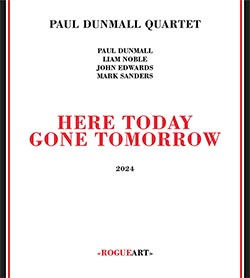
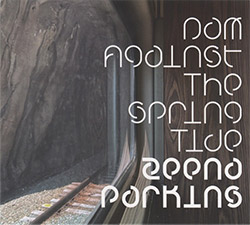
![Weston, Matt: Communism Has Appeared On The Scene [VINYL 2 LPs]](https://www.teuthida.com/productImages/misc4/35546.jpg)
![Coleman, Steve & Five Elements: PolyTropos / Of Many Turns [2 CDs]](https://www.teuthida.com/productImages/misc4/35476.jpg)
![Sorey, Tyshawn (w/ Diehl / Ragahavan): The Susceptible Now [DOUBLE VINYL]](https://www.teuthida.com/productImages/misc4/35477.jpg)


![John Coltrane Quartet (Coltrane / Tyner / Garrison / Jones): Impressions From Graz 1962, Revisited [2 CDs]](https://www.teuthida.com/productImages/misc4/35495.jpg)

![Guy, Barry / Ken Vandermark: Occasional Poems [2 CDs]](https://www.teuthida.com/productImages/misc4/34849.jpg)
![Novoa / Carter / Mela Trio: Vol.1 [VINYL]](https://www.teuthida.com/productImages/misc4/35236.jpg)


![Elephant9 : Mythical River [VINYL]](https://www.teuthida.com/productImages/misc4/34624.jpg)
![Evans, Peter (Evans / Eldh / Black): Extra [VINYL]](https://www.teuthida.com/productImages/misc4/35279.jpg)

![McPhee, Joe: Straight Up, Without Wings [BOOK]](https://www.teuthida.com/productImages/misc4/35454.jpg)
![Jeck, Philip: rpm [2 CDs]](https://www.teuthida.com/productImages/misc4/35455.jpg)









![Barker / Parker / Irabagon: Bakunawa [VINYL]](https://www.teuthida.com/productImages/misc4/35533.jpg)




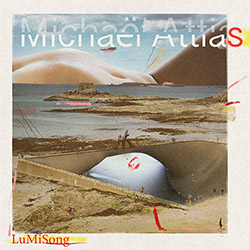
![Blaser, Samuel / Marc Ducret / Peter Bruun: Dark Was The Night, Cold Was The Ground [VINYL 10-inch]](https://www.teuthida.com/productImages/misc4/35492.jpg)






![Warren, Kenny (Warren / Hoffman / Ellman): Sweet World [VINYL]](https://www.teuthida.com/productImages/misc4/35451.jpg)




![Blake, Ran / Dave Knife Fabris: Live Amsterdam 2006, First Visit [CD + POSTCARDS]](https://www.teuthida.com/productImages/misc4/35275.jpg)




![DNS: Taking Big Bites Of The Khandas Three Cafes Deep [2 CDs]](https://www.teuthida.com/productImages/misc4/35334.jpg)




![Cleaver, Gerald: The Process [VINYL]](https://www.teuthida.com/productImages/misc4/34966.jpg)




![Alva Noto: HYbr:ID II [VINYL 2 LPs]](https://www.teuthida.com/productImages/misc4/35201.jpg)

![Baron, Derek / Luke Martin: Distinct and Concealed [CASSETTE + DOWNLOAD]](https://www.teuthida.com/productImages/misc4/35079.jpg)

![Lyle, Erica Dawn : Colonial Motels [CASSETTE + DOWNLOAD]](https://www.teuthida.com/productImages/misc4/35080.jpg)









![Sanna, Claudio: Compositori Sardi Contemporanei II [2 CDs]](https://www.teuthida.com/productImages/misc4/35317.jpg)







![Zurria, Manuel: Fame di Vento [3 CDs]](https://www.teuthida.com/productImages/misc4/35167.jpg)

![Granberg, Magnus / Nattens Inbrott / Skogen: Holde Traume, Kehret Wieder! [2 CDs]](https://www.teuthida.com/productImages/misc4/35038.jpg)
![Frey, Jurg: Outermost Melodie [2 CDs]](https://www.teuthida.com/productImages/misc4/35039.jpg)

![Pavone, Jessica: Reverse Bloom [VINYL]](https://www.teuthida.com/productImages/misc4/34895.jpg)




![Modney (Modney / Wooley / Gentile / Roberts / Pluta / Symthe / ...): Ascending Primes [2 CDs]](https://www.teuthida.com/productImages/misc4/34852.jpg)







![Elephant9 with Terje Rypdal: Catching Fire [VINYL 2 LPs]](https://www.teuthida.com/productImages/misc4/35355.jpg)
![Deerlady (Obomsawin, Mali / Magdalena Abrego): Greatest Hits [VINYL]](https://www.teuthida.com/productImages/misc4/34876.jpg)




![Haino, Keiji: Black Blues [2 CDs]](https://www.teuthida.com/productImages/misc4/35109.jpg)



![Surplus 1980: Illusion of Consistency [CD]](https://www.teuthida.com/productImages/misc4/35069.jpg)
![Staiano, Moe: Away Towards the Light [VINYL + DOWNLOAD]](https://www.teuthida.com/productImages/misc4/35037.jpg)



![Caveira (Gomes / Sousa / Abras / Ferrandini): Ficar Vivo [VINYL]](https://www.teuthida.com/productImages/misc4/34643.jpg)
![Gregg, J. J. / David Van Auken: Lunar Prairie [CD w/ DOWNLOAD]](https://www.teuthida.com/productImages/misc4/34611.jpg)

![Coultrain: Mundus [VINYL]](https://www.teuthida.com/productImages/misc4/32439.jpg)
![Mattin: Songbook #6 [VINYL]](https://www.teuthida.com/productImages/misc4/27317.jpg)
![Punkappella: Wake Up [7-inch VINYL]](https://www.teuthida.com/productImages/misc4/17519.jpg)
![Residents, The: WARNING: UNiNC.: Live And Experimental Recordings 1971-1972 [VINYL 2 LPs]](https://www.teuthida.com/productImages/misc4/31521.jpg)
![Coultrain: Phantasmagoria [VINYL]](https://www.teuthida.com/productImages/misc4/30142.jpg)
![Lennon, Sean Ono: Asterisms [VINYL]](https://www.teuthida.com/productImages/misc4/34517.jpg)

![Coley, Byron: Dating Tips for Touring Bands [VINYL]](https://www.teuthida.com/productImages/misc4/17906.jpg)

![Lost Kisses: My Life is Sad & Funny [DVD]](https://www.teuthida.com/productImages/misc4/lostKissesDVD.jpg)